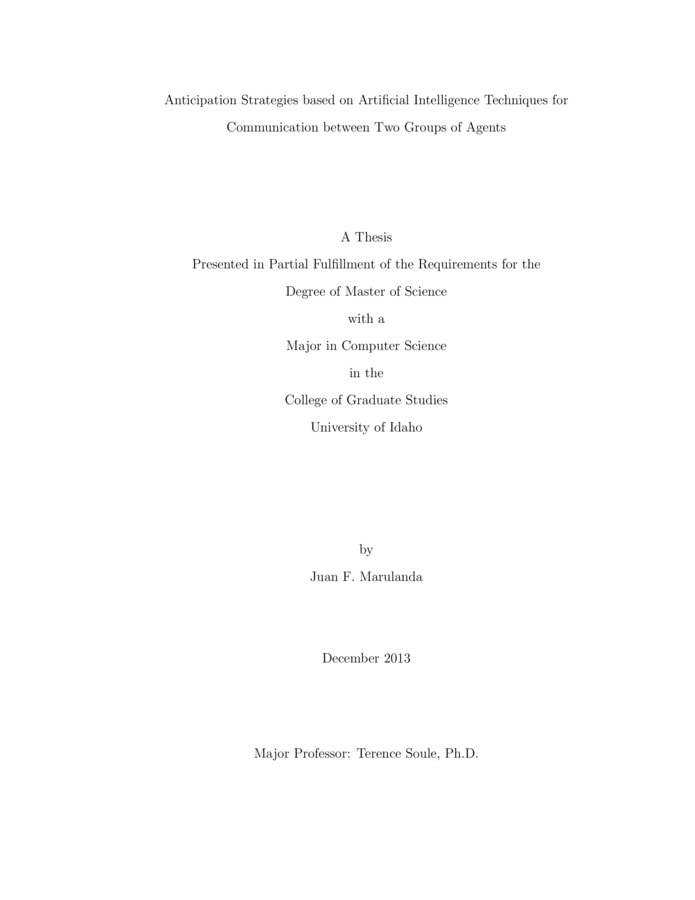Please note: this collection is no longer updated. Visit our Theses and Dissertations Collection in VERSO for all U of I ETD since 2012.
ETD PDF
Anticipation Strategies Based on Artificial Intelligence Techniques for Communication Between Two Groups of Agents
Citation
Marulanda, Juan Felipe. (2013). Anticipation Strategies Based on Artificial Intelligence Techniques for Communication Between Two Groups of Agents. Theses and Dissertations Collection, University of Idaho Library Digital Collections. https://www.lib.uidaho.edu/digital/etd/items/etd_403.html
- Title:
- Anticipation Strategies Based on Artificial Intelligence Techniques for Communication Between Two Groups of Agents
- Author:
- Marulanda, Juan Felipe
- Date:
- 2013
- Keywords:
- Anticipation Communication Fuzzy Logic Intelligent Control Neural Networks Robots Artificial Intelligence Computer science Robotics
- Program:
- Computer Science
- Abstract:
- In this thesis, a set of anticipation strategies based on Artificial Intelligence techniques is presented. The goal of these strategies are to support a group of agents ability to synchronize their movements during a mission when the communication is inconsistent. The agents are divided into two main groups: the leader and the followers. In general, the followers receive the leader's messages which informs them about its current status. The followers change their behaviors based on these incoming messages in order to complete the mission successfully. Scenarios are added where the message frequency is reduced. The followers are able to detect when messages are missing and use an anticipation module to try to infer the missing information. The anticipation module does not use the complete history of messages sent by the leader, instead it uses only a small window of recent messages. In addition, two environments were developed to test anticipation for this thesis: a simulated environment and a real environment using mobile robots. For the simulation, 5 different anticipation models (4 Neural Networks and 1 Fuzzy Logic) were tested using 8 different leader behaviors. For the real environment, 1 anticipation model was tested (Fuzzy Logic) was tested using 3 different leader behaviors. The results show that these anticipation strategies are generally capable of generating anticipated messages to fill in when leader messages are missing, thereby allowing the followers to complete missions successfully.
- Description:
- Thesis (M.S., Computer Science)--University of Idaho, December 2013
- Major Professor:
- Terence Soule
- Type:
- Text
- Format:
- application/pdf
Rights
- Rights:
- In Copyright - Educational Use Permitted. For more information, please contact University of Idaho Library Special Collections and Archives Department at libspec@uidaho.edu.
- Standardized Rights:
- http://rightsstatements.org/vocab/InC-EDU/1.0/

